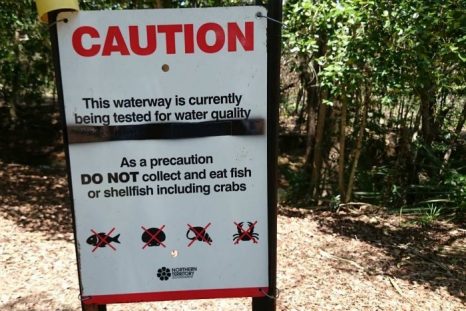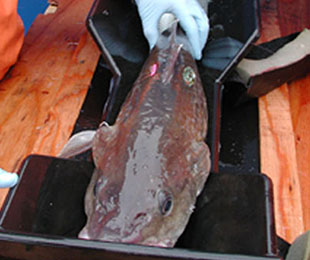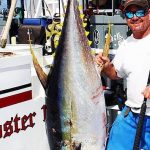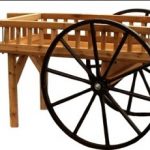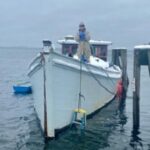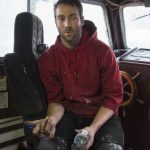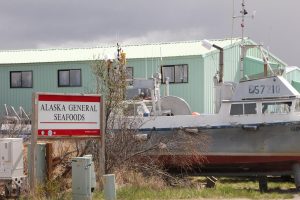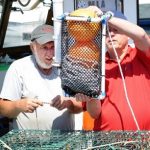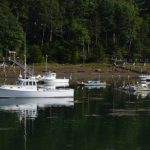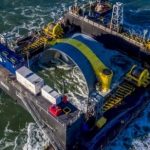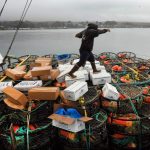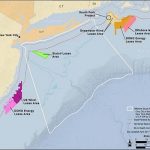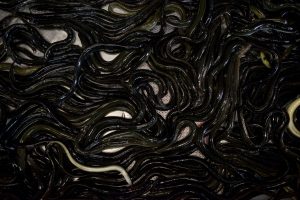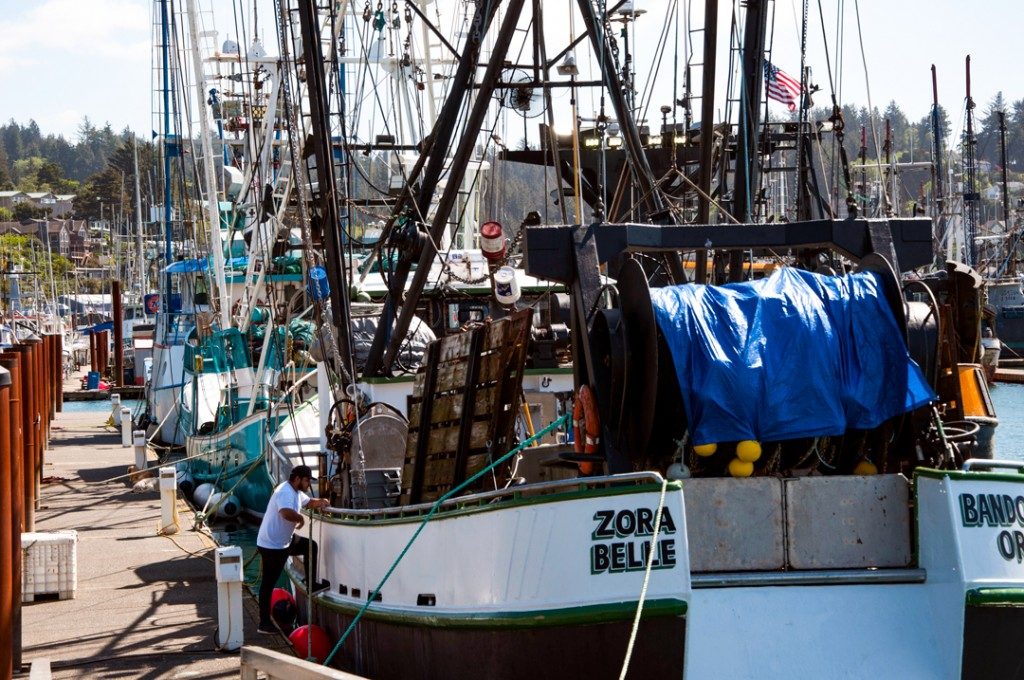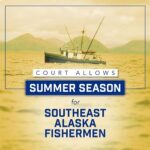Monthly Archives: October 2017
Mi’kmaq woman to challenge lobster fishing rules
 Cheryl Maloney is gearing up to go lobster fishing. She doesn’t have a commercial licence and she won’t be using one of the food and ceremonial purposes tags she is eligible for as a member of the Sipekne’katik First Nation. What the longtime organizer for indigenous and women’s rights has is a 1999 Supreme Court decision stating that she has the treaty right to make a “moderate livelihood” off the resources the Mi’kmaq traditionally exploited. When she lands her lobster on a South Shore wharf, Maloney plans to invite Fisheries and Oceans Canada and the RCMP to come and watch her sell them. click here to read the story 11:15
Cheryl Maloney is gearing up to go lobster fishing. She doesn’t have a commercial licence and she won’t be using one of the food and ceremonial purposes tags she is eligible for as a member of the Sipekne’katik First Nation. What the longtime organizer for indigenous and women’s rights has is a 1999 Supreme Court decision stating that she has the treaty right to make a “moderate livelihood” off the resources the Mi’kmaq traditionally exploited. When she lands her lobster on a South Shore wharf, Maloney plans to invite Fisheries and Oceans Canada and the RCMP to come and watch her sell them. click here to read the story 11:15
Inshore harvesters, including a member of FFAW’s inshore council dispute snow crab science
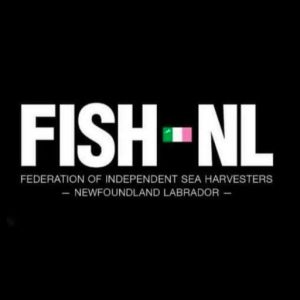 The Federation of Independent Sea Harvesters of Newfoundland and Labrador (FISH-NL) questions why the federal Department of Fisheries and Oceans would report poor scientific signs of snow crab when it’s not the full picture of the state of the resource. The results of crab surveys carried out by inshore harvesters won’t be available until December. “The science is only half of the story — inshore harvesters have the other half,” says Ryan Cleary, President of FISH-NL. “This shows the same old disconnect exists between DFO science and what harvesters are reporting on the water. Why does DFO report doom and gloom when all the information is not on the table?” click here to read the press release 09:19
The Federation of Independent Sea Harvesters of Newfoundland and Labrador (FISH-NL) questions why the federal Department of Fisheries and Oceans would report poor scientific signs of snow crab when it’s not the full picture of the state of the resource. The results of crab surveys carried out by inshore harvesters won’t be available until December. “The science is only half of the story — inshore harvesters have the other half,” says Ryan Cleary, President of FISH-NL. “This shows the same old disconnect exists between DFO science and what harvesters are reporting on the water. Why does DFO report doom and gloom when all the information is not on the table?” click here to read the press release 09:19
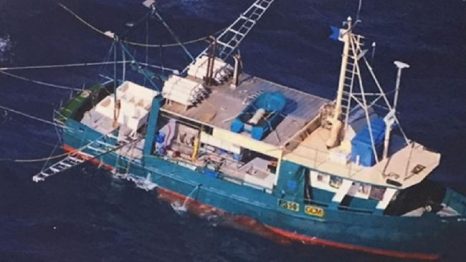
Families of missing six cling to hope as wild weather hampers search
Hope is fading of finding six men alive after their trawler capsized, with police saying the likelihood of finding them alive is “not looking real promising”. On Wednesday afternoon, police released the identities of all six men who were on board the trawler, named Dianne, adding 34-year-old Chris Sammut and 28-year-old Zach Feeney to the list of known missing men. Skipper Ben Leahy (45) and Cairns men Adam Bidner (33), Adam Hoffman (30) and Eli Tonks (39) had already been named as being on board. The trawler capsized off the central Queensland coast near Middle Island, about 7.30pm Monday.The trawler had been fishing for sea cucumber when it got into trouble off the town of 1770 and sank about five hours later. click here to read the story 08:54
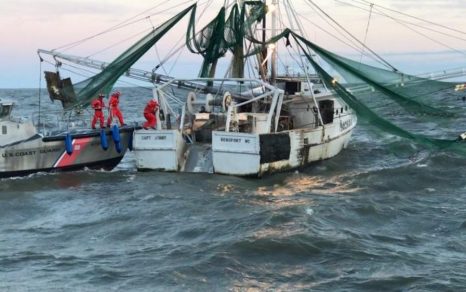
Coast Guard assists fishing vessel taking on water near Ocracoke Island, NC
The Coast Guard came to the aid of a boat taking on water off Ocracoke Island Tuesday. Watchstanders in the Sector North Carolina Command Center in Wilmington received notification that the 72-foot fishing vessel Capt. Jimmy was taking on water in Pamlico Sound near Bluff Shoal Light at about 3:30 a.m.Two 47-foot Motor Lifeboat crews from Station Hatteras Inlet arrived on scene and passed dewatering pumps and personnel to the fishing boat to assist. The dewatering pumps helped keep up with the flooding while one of the Hatteras Inlet crews escorted the Capt. Jimmy south to the Neuse River entrance, where a 29-foot Response Boat-Small crew from Station Fort Macon took over the escort. -USCG-08:25
Is the fishing boat stuck on the rocks near Cayucos going to stay there forever?
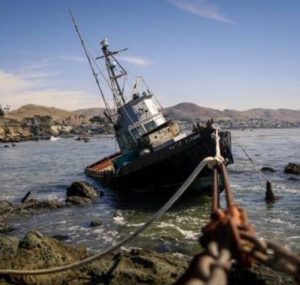 A Morro Bay commercial fishing boat has been stuck on coastal rocks off the northern coast of Cayucos for more than two months, mired in a jurisdictional limbo as officials from state, federal and county agencies figure out how to remove it — and who’s going pay for it. It may stay there a while. The Point Estero ran aground on July 28 while returning to the Morro Bay Harbor from about 40 miles offshore, where the operator was fishing for slime eels, the Morro Bay Harbor Patrol previously told The Tribune. click here to read the story 21:37
A Morro Bay commercial fishing boat has been stuck on coastal rocks off the northern coast of Cayucos for more than two months, mired in a jurisdictional limbo as officials from state, federal and county agencies figure out how to remove it — and who’s going pay for it. It may stay there a while. The Point Estero ran aground on July 28 while returning to the Morro Bay Harbor from about 40 miles offshore, where the operator was fishing for slime eels, the Morro Bay Harbor Patrol previously told The Tribune. click here to read the story 21:37
Coast Guard suspends search for missing worker after explosion
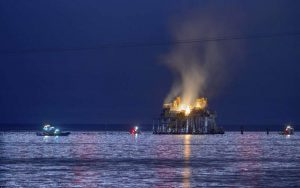 The U.S. Coast Guard has suspended their search for a Texas man who disappeared when an oil and gas platform exploded on a lake near New Orleans. Authorities identified 44-year-old Timothy Morrison, of Katy, Texas, as the missing man. He was a subcontractor working on the structure. “The decision to suspend a search is never an easy one,” said Cmdr. Zac Ford. “We send our thoughts and prayers to the Morrison family and all those affected by this incident.” click here to read the story 19:04
The U.S. Coast Guard has suspended their search for a Texas man who disappeared when an oil and gas platform exploded on a lake near New Orleans. Authorities identified 44-year-old Timothy Morrison, of Katy, Texas, as the missing man. He was a subcontractor working on the structure. “The decision to suspend a search is never an easy one,” said Cmdr. Zac Ford. “We send our thoughts and prayers to the Morrison family and all those affected by this incident.” click here to read the story 19:04
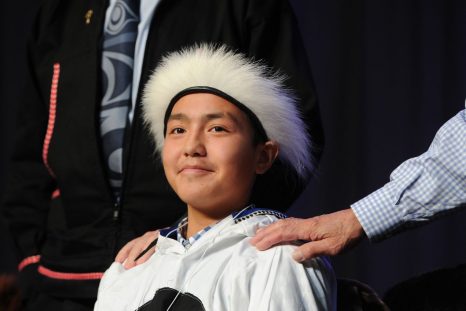
This Alaska teen’s biggest catch was a 57-foot whale. Animal-rights activists didn’t like it. He’s not backing down.
He sat on stage, the governor on one side, the lieutenant governor on the other, his parents at the end, and he told a story bigger than the conference room, a story of a life on the wild lands and in the rough seas. Chris Apassingok of Gambell on Monday told how he helped catch a massive bowhead whale in April when he was 16, and how radical animal-rights activists went after him and his family. The whale changed their world. But the critics won’t change how he lives, he told the First Alaskans Institute Elders and Youth Conference, a precursor to the upcoming Alaska Federation of Natives convention. click here to read the story 17:48
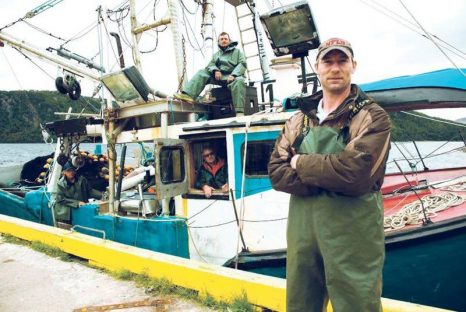
Port Saunders fisherman defiant over remarks he made about the FFAW
Despite threats of a lawsuit and a demand for an apology, fish harvester Conway Caines remains defiant in his criticism of FFAW-Unifor. In September, Caines made harsh remarks on VOCM’s “Open Line” program, alleging that the Fish, Food and Allied Workers (FFAW) union is an unlawful enterprise. His accusations of backdoor dealings stem from the 2016 Supreme Court decision in favour of scallop harvesters over the FFAW. The harvesters had sought compensation from the FFAW due to the loss of fishing grounds along the Strait of Belle Isle. click here to read the story 13:12
Planned license lottery draws fire at scallop hearing
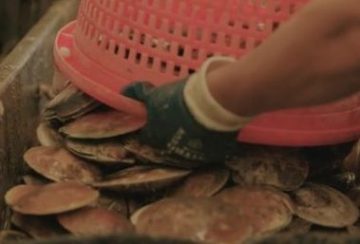 One look at the audience at a Department of Marine Resources hearing on new scallop fishing rules last week made it clear that the fishery is getting older. By a good margin, most of the three dozen or so scallop harvesters at Ellsworth City Hall last Wednesday evening had faces lined by years on the water and beards long gone gray.,, In 2009, the Legislature passed a moratorium on new scallop licenses. It also ordered DMR to come up with a lottery system to allow new entrants into a fishery that Brooklin scallop dragger David Tarr describes as a “club. click here to read the story 12:12
One look at the audience at a Department of Marine Resources hearing on new scallop fishing rules last week made it clear that the fishery is getting older. By a good margin, most of the three dozen or so scallop harvesters at Ellsworth City Hall last Wednesday evening had faces lined by years on the water and beards long gone gray.,, In 2009, the Legislature passed a moratorium on new scallop licenses. It also ordered DMR to come up with a lottery system to allow new entrants into a fishery that Brooklin scallop dragger David Tarr describes as a “club. click here to read the story 12:12
Marine Protected Areas – Fishermen say Ottawa not clear on what potential protected areas will mean for fishing grounds
Cape Breton snow crab fisherman Basil MacLean speaks for many in coastal 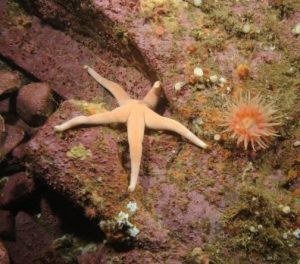 when he complains Ottawa has not been clear about what a potential marine protected area (MPA) will mean in his fishing grounds. “We’ve got no clarity. We got no idea what they want to protect,” he says. Earlier this year, officials with the Department of Fisheries and Oceans revealed an area known as the Cape Breton Trough in western Cape Breton is a potential candidate for designation as a marine protected area. The Trough overlaps the lucrative snow crab grounds known in DFO bureaucratise as Area 19. click here to read the story 11:41
when he complains Ottawa has not been clear about what a potential marine protected area (MPA) will mean in his fishing grounds. “We’ve got no clarity. We got no idea what they want to protect,” he says. Earlier this year, officials with the Department of Fisheries and Oceans revealed an area known as the Cape Breton Trough in western Cape Breton is a potential candidate for designation as a marine protected area. The Trough overlaps the lucrative snow crab grounds known in DFO bureaucratise as Area 19. click here to read the story 11:41
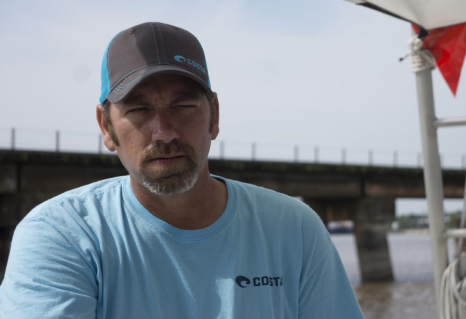
Of Shrimp and Petroleum
I am traveling south on Highway 1 through Iberville Parish, Louisiana. I pass fields of sugarcane, chemical factories, strange roadside cemeteries, and what appears to be a combination seafood restaurant and barbershop ambiguously advertising “‘Phresh Cuts.”’ It is Friday afternoon, the start of Labor Day weekend. It is a manageable 87 degrees outside, for now.,,, I’m headed to the annual Shrimp and Petroleum Festival in Morgan City. The festival is the oldest state-chartered harvest festival in Louisiana. It began in 1936 as a single day, when all the shrimp boats in Morgan City would line up in the Atchafalaya River to be blessed by a Catholic priest. In the 1960s, as oil became the dominant industry in town, petroleum was added to the name and the logo became a shrimp in a hard hat wrapped around an oil derrick. by Nick Chrastil click here to read the story 11:02
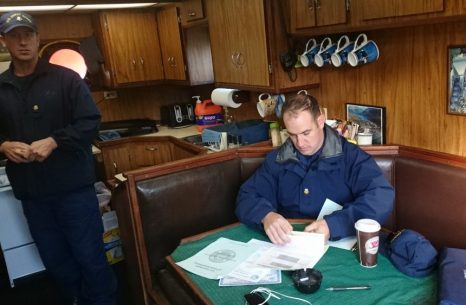
Petty Officer 1st Class Bill Colclough says, Boater beware: Vessel documentation fraud lurks online
A new scam is targeting boat owners looking to save a little time online, but it’s costing them hundreds of dollars: Websites offering documentation renewal services for a fee. These websites lure boaters with the appearance and convenience of an official government website, but, just because a site looks like the Coast Guard and works like the Coast Guard, that does not mean it’s the Coast Guard. Boaters using these websites can end up spending three times the standard fee, and Coast Guard boarding officers will not accept their vessel’s documentation as valid. Why? Story by Petty Officer 1st Class Bill Colclough click here to read the story 09:46
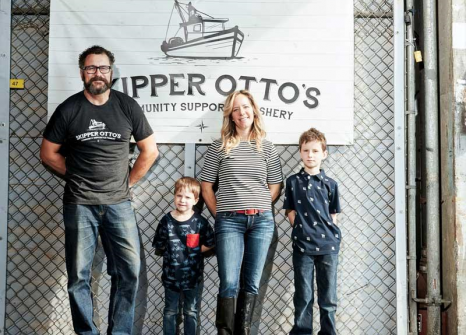
Fish feud: ITQ’s – Will changes to the West Coast salmon industry hurt or help independent fishermen?
The B.C. salmon fishery keeps resisting a market-based management system. Critics accuse the feds of pitting independent fishermen against corporate giants, but what if this new approach gives the little guy some much-needed financial clout?,,, Thorkelson gets furious thinking about how fishing rights and control, thanks to what she considers a concerted effort by the DFO to impose ITQs, have migrated up the food chain to the likes of Canadian Fishing Co. Part of the Jim Pattison Group, Canfisco is a vertically integrated company that owns licences, quota and fishing vessels in most fisheries on the coast, plus processing facilities in B.C. and Alaska that together handle some 20,000 tonnes of salmon annually. click here to read the story 09:03
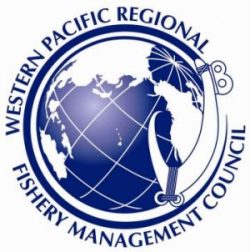
Western Pacific Fishery Management Council – 171st Council Meeting at American Samoa, October 17-19, 2017
For information, the meeting agenda, and a link to a rare WPFMC webinar, click here 21:29
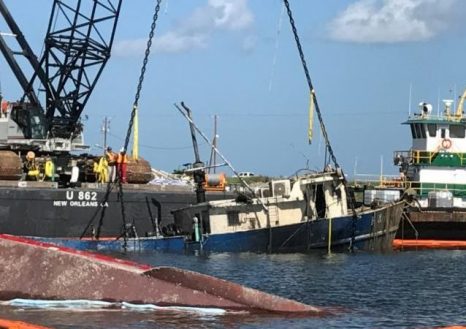
Global Diving Helps Refloat Boats After Hurricane Harvey
The fishing vessel R&R is floating once again after spending a month at the bottom of Conn Brown Harbor in Aransas Pass, Texas. The 100-ton shrimp boat got entangled with another vessel and sank during Hurricane Harvey. She was refloated by Global Diving and Salvage, which was contracted by the Coast Guard and the Texas General Land Office (GLO) to remove her from the waterway. Approximately 6,000 gallons of diesel fuel and other pollutants were pumped off before de-watering the vessel. images, click here to read the story 21:08
Fishing Rights: Small Scale Fishermen walkout of meeting with ministry over rock lobster suspension
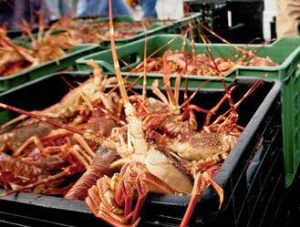 Small-scale and near-shore fishers walked out of a meeting in Cape Town with the deputy director-general for Fisheries Siphokazi Ndudane yesterday, saying her explanations relating to the suspension of the West Coast rock lobster fishing rights allocation were not sufficient. Earlier, angry fishers blocked the entrance to the Department of Agriculture, Forestry and Fisheries offices on the Foreshore again, protesting the outcome of the fishing rights allocation process and blocking entry into the offices. “We are asking for (Ndudane) and the minister to postpone the proposed reductions (of fishing allocations) on the rock lobster and stop the offshore allocations of commercial companies. click here to read the story 20:30
Small-scale and near-shore fishers walked out of a meeting in Cape Town with the deputy director-general for Fisheries Siphokazi Ndudane yesterday, saying her explanations relating to the suspension of the West Coast rock lobster fishing rights allocation were not sufficient. Earlier, angry fishers blocked the entrance to the Department of Agriculture, Forestry and Fisheries offices on the Foreshore again, protesting the outcome of the fishing rights allocation process and blocking entry into the offices. “We are asking for (Ndudane) and the minister to postpone the proposed reductions (of fishing allocations) on the rock lobster and stop the offshore allocations of commercial companies. click here to read the story 20:30
Maine coastal villagers say cables from offshore wind project will wreck their way of life
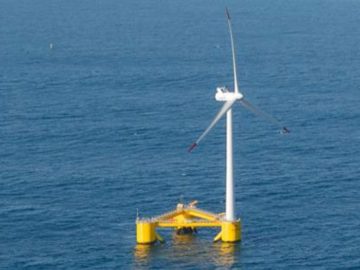 Opponents of an offshore wind project slated for development off Monhegan Island will take their fight to a new level Tuesday, when they plan to file a petition designed to prevent cables delivering electricity from the project to the mainland from passing through St. George. The group Preserve Our Remarkable Town, or PORT, says it has collected more than 300 signatures from residents of St. George, which includes the villages of Tenants Harbor and Port Clyde, who fear the the project will harm the local fishing industry and undermine the quality of life and property values in their communities. click here to read the story 19:39
Opponents of an offshore wind project slated for development off Monhegan Island will take their fight to a new level Tuesday, when they plan to file a petition designed to prevent cables delivering electricity from the project to the mainland from passing through St. George. The group Preserve Our Remarkable Town, or PORT, says it has collected more than 300 signatures from residents of St. George, which includes the villages of Tenants Harbor and Port Clyde, who fear the the project will harm the local fishing industry and undermine the quality of life and property values in their communities. click here to read the story 19:39
North Carolina: Local shrimpers still competing with the flood of imported shrimp
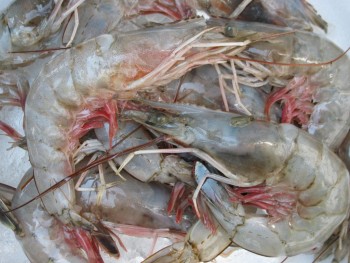 Shrimp is the second largest commercial fishery in North Carolina, bested only by blue crabs in pounds landed and dockside value. But unfortunately, within the last 30 years or so, shrimp harvesting has been hit the hardest out of all the commercial seafood industries. A study funded by Sea Grant shows the number of seafood processors declined by 36 percent between 2000 and 2011, causing the economic value of North Carolina’s catch to decline from about $109 million in 1995 to $79 million in 2013. One of the main problems with the state’s seafood industry today is the workforce. Older fishermen are leaving the industry faster than younger watermen are joining their ranks. When adjusted for inflation, the price of shrimp has dropped by more than half since the late 1970s and imported shrimp is a big reason why. click here to read the story 15:23
Shrimp is the second largest commercial fishery in North Carolina, bested only by blue crabs in pounds landed and dockside value. But unfortunately, within the last 30 years or so, shrimp harvesting has been hit the hardest out of all the commercial seafood industries. A study funded by Sea Grant shows the number of seafood processors declined by 36 percent between 2000 and 2011, causing the economic value of North Carolina’s catch to decline from about $109 million in 1995 to $79 million in 2013. One of the main problems with the state’s seafood industry today is the workforce. Older fishermen are leaving the industry faster than younger watermen are joining their ranks. When adjusted for inflation, the price of shrimp has dropped by more than half since the late 1970s and imported shrimp is a big reason why. click here to read the story 15:23
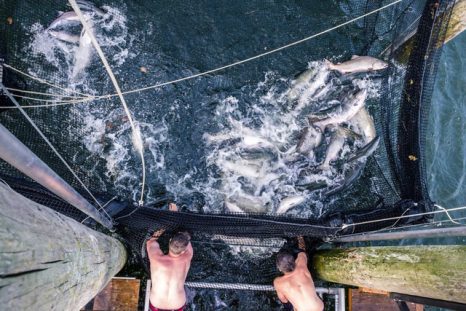
Fish traps for Columbia River salmon get another look
More than eight decades after their demise, fish traps are getting a fresh look from researchers convinced they offer a more sustainable way to catch Columbia River salmon. These traps are formed by nets attached to pilings that gently guide the fish into a kind of underwater corral. Wild fish protected under the federal Endangered Species Act can be released to resume their upstream journey, while their more abundant hatchery brethren are sent to the processors. These traps are formed by nets attached to pilings that gently guide the fish into a kind of underwater corral. Wild fish protected under the federal Endangered Species Act can be released to resume their upstream journey, while their more abundant hatchery brethren are sent to the processors. click here to read the story 12:55
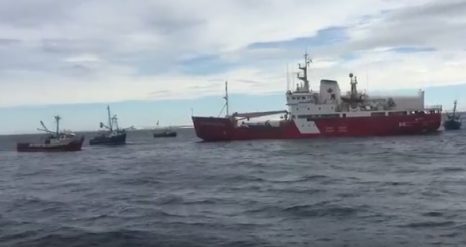
Port au Choix crab fishermen charged with obstruction of justice over May protest
Harvesters who took part in a protest in Port au Choix last May have now been told they will be charged with obstruction of justice and placing crab pots in a wrong zone. Fisherman Dean Olfrey was called in for a meeting Wednesday, Oct. 11, and was informed he and the other harvesters involved in the protest would be facing these two charges. “It was a peaceful demonstration,” Olfrey said. “We just wanted to show that we should have the right to fish in this zone, and now they’re looking to charge us.” click here to read the story 12:14
Captain asks court to throw out blood test in fatal sinking case
 The Cushing captain who is accused of causing the death of two crew members when his lobsterboat sank during a November 2014 gale has asked the court to throw out a blood test that showed he was under the influence of drugs at the time of the incident. The U.S. Attorney’s Office is opposing the motion filed on behalf of 29-year-old Christopher A. Hutchinson. No ruling has yet been issued by the federal judge hearing the case in U.S. District Court in Portland. Hutchinson is charged with two counts of seaman’s manslaughter for the deaths of Tom Hammond, 27, of Rockland, and 15-year-old Tyler Sawyer, who lived in St. George and Waldoboro. They were crew members aboard Hutchinson’s lobsterboat, No Limits, which sank Nov. 1, 2014. click here to read the story 11:52
The Cushing captain who is accused of causing the death of two crew members when his lobsterboat sank during a November 2014 gale has asked the court to throw out a blood test that showed he was under the influence of drugs at the time of the incident. The U.S. Attorney’s Office is opposing the motion filed on behalf of 29-year-old Christopher A. Hutchinson. No ruling has yet been issued by the federal judge hearing the case in U.S. District Court in Portland. Hutchinson is charged with two counts of seaman’s manslaughter for the deaths of Tom Hammond, 27, of Rockland, and 15-year-old Tyler Sawyer, who lived in St. George and Waldoboro. They were crew members aboard Hutchinson’s lobsterboat, No Limits, which sank Nov. 1, 2014. click here to read the story 11:52
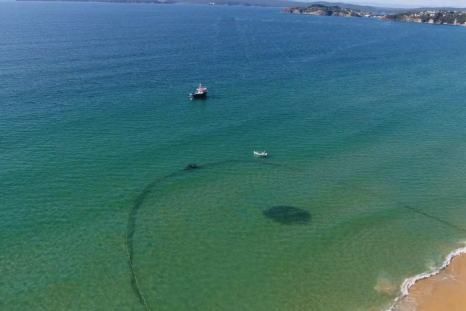
Drone adds modern twist to an age-old fishing method for fourth generation Eden fisherman
His great grandfather arrived in Eden in the mid 1800s, and each successive generation has entered the fishing industry — from trapping and beach fishing to pioneering the lucrative bluefin tuna fishery using pole and live bait, then later purse seine trawling using light aircraft for fish spotting. After a long career as a commercial fisherman, Mr Fourter has now returned to his childhood passion catching salmon and mullet off the beaches of Twofold Bay and the Eden coast using the traditional beach seine method. He shoots a 300-metre-long net from a 16-foot rowboat around a patch of schooling fish. Excellent video, click here to read the story 10:05
Poor signs for N.L. snow crab
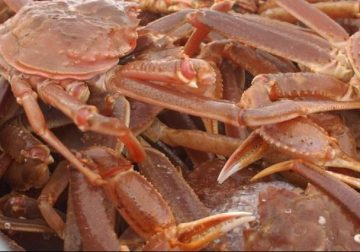 Aboard the Canadian Coast Guard ship Vladykov this week, crabs captured in Department of Fisheries and Oceans (DFO) traps were being pulled from the water, dumped into orange, plastic baskets, pulled out, measured and categorized before being dumped back. These were among the last of the crab checked for the 2017 inshore survey, ongoing since May.,,, The official survey results won’t be released until early next year (after going to DFO’s stock assessment branch and peer review), but generally speaking, Mullowney suggested there is continued decline, with ocean warming a significant factor and things like predation increasingly important. click here to read the story 08:59
Aboard the Canadian Coast Guard ship Vladykov this week, crabs captured in Department of Fisheries and Oceans (DFO) traps were being pulled from the water, dumped into orange, plastic baskets, pulled out, measured and categorized before being dumped back. These were among the last of the crab checked for the 2017 inshore survey, ongoing since May.,,, The official survey results won’t be released until early next year (after going to DFO’s stock assessment branch and peer review), but generally speaking, Mullowney suggested there is continued decline, with ocean warming a significant factor and things like predation increasingly important. click here to read the story 08:59
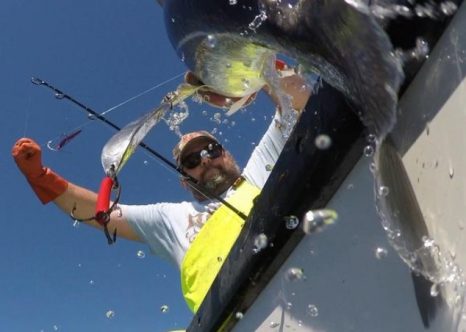
Caught today, on your plate tomorrow
It is 1:36 a.m. Friday, Sept. 8 and the crew of the small fishing boat F/V Finlander, a 36-foot Northern Bay, leaves the protection of the channel and ventures into the open Atlantic Ocean. The pilot house of the Finlander is dark, illuminated only by a sole Global Positioning System (GPS) display screen showing navigational information and an eastward course plot. The boat begins to pitch as sea swells grow larger and cross winds increase. “Today is going to be a rough one.” says Capt. Tim Rider, a Dover native and owner of the Finlander. “The wind is coming from a different direction than the swells, it’s going to bounce us all over. It’s going to get rougher the farther out we go, but I think we can handle it.” click here to read the story 08:15
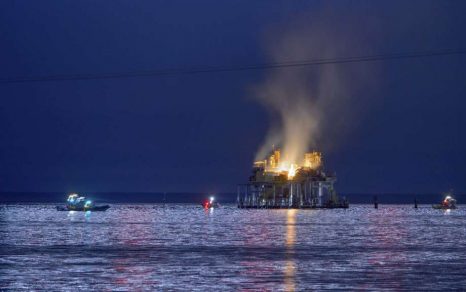
Louisiana – 1 missing after oil rig explodes on Lake Pontchartrain
An oil rig explosion on a lake north of New Orleans, apparently caused when cleaning chemicals ignited, injured seven people and left authorities searching for another who was missing. There were “a lot of injuries,” many of them serious, with at least seven confirmed and more expected from the Sunday evening explosion on Lake Pontchartrain, Kenner Police Department spokesman Sgt. Brian McGregor told The Times-Picayune . No deaths were immediately reported. click here to read the story 07:53
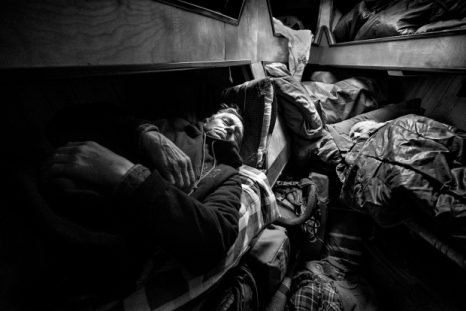
Quebec photographer shows the human side of sealing
Newfoundland and Labrador’s seal hunt has been through some difficult seasons in recent years. Ice conditions have been hazardous and the cost of insurance has gone up to the point many sealers don’t bother to go hunting. Prices were uncertain. Plus the European Union and other markets have banned the import of seal products like pelts and oil. The bans were the result of decades of protests by animal rights activist groups, which received many donations through ad campaigns showing dramatic footage of red blood on white ice, and some sealers behaving inhumanely. That’s where Quebec photographer Yoanis Menge’s career as a sealer began. photo’s, click here to read the story 18:04






